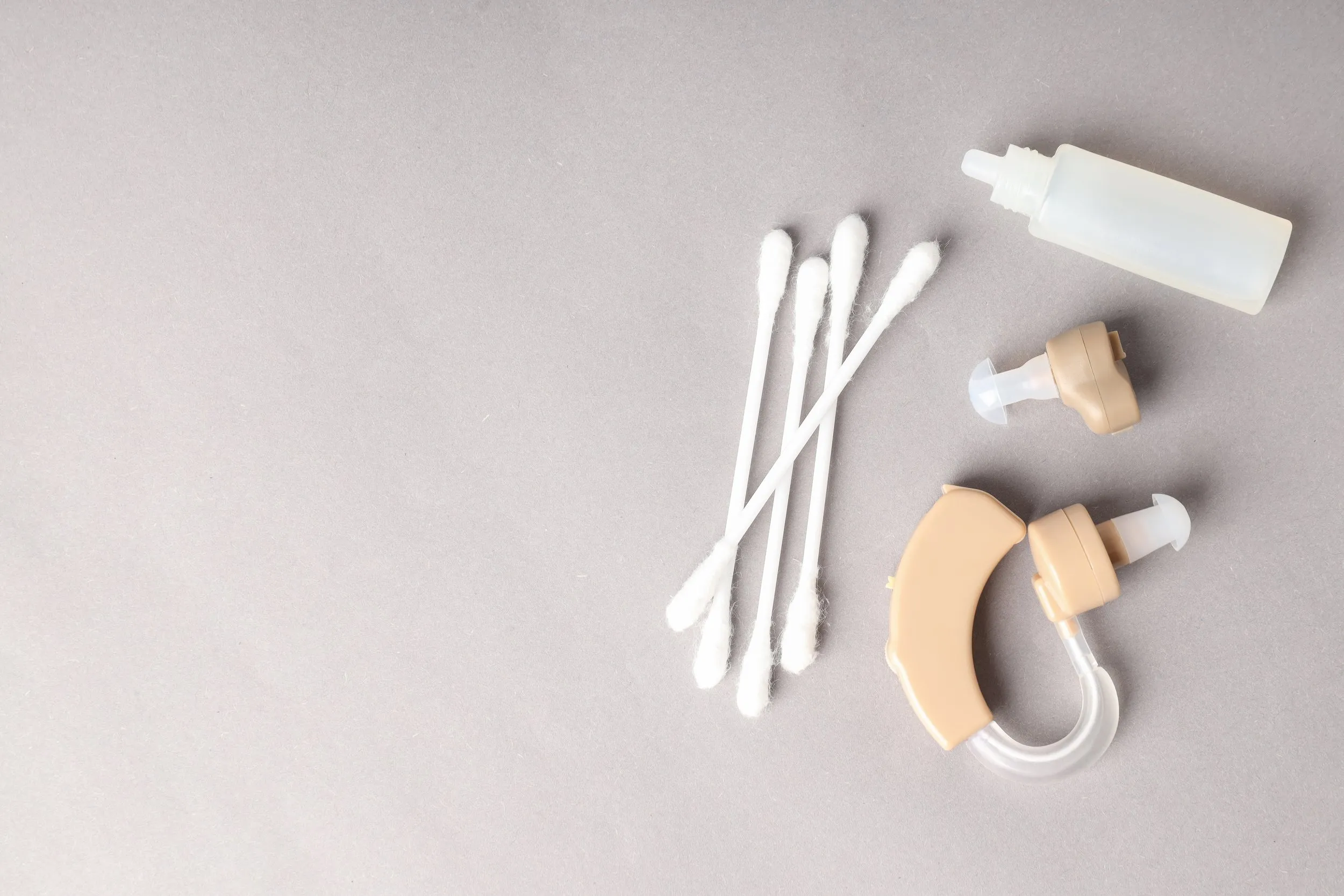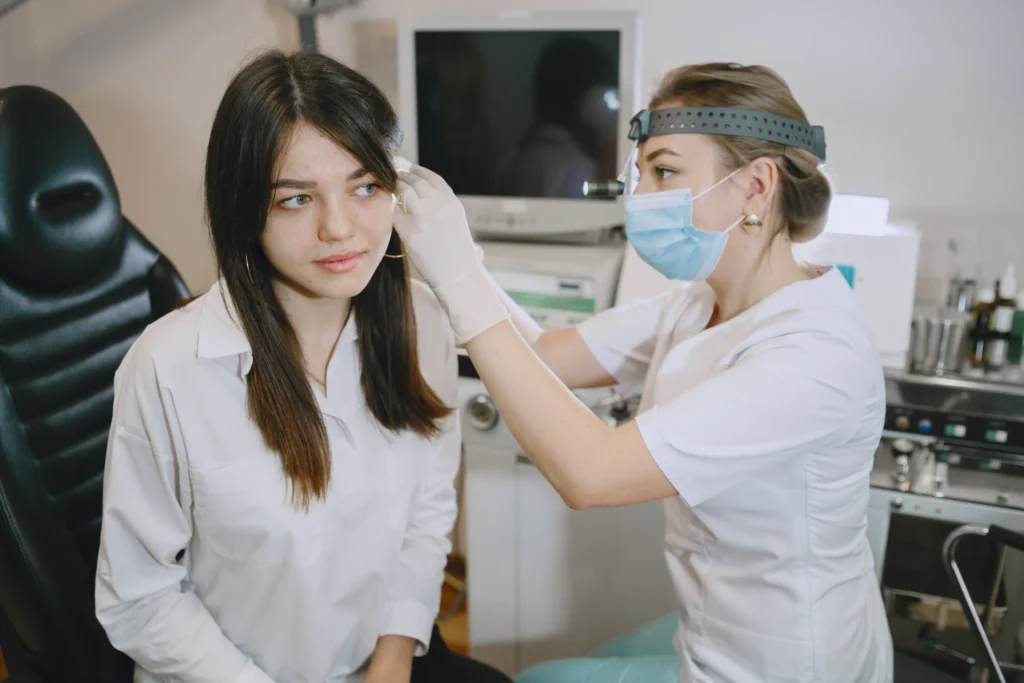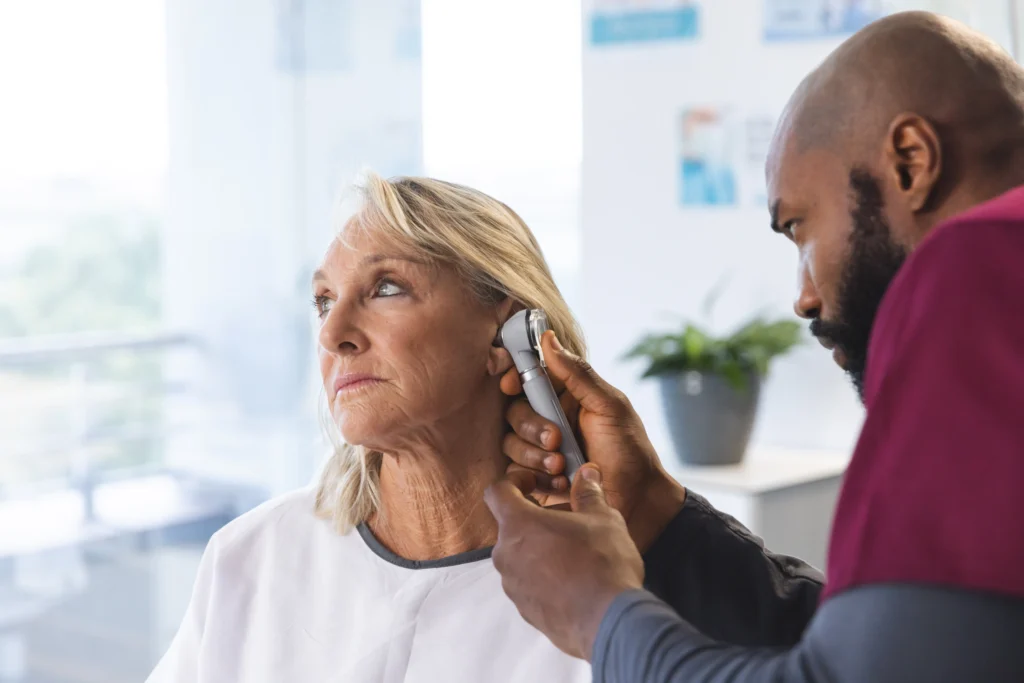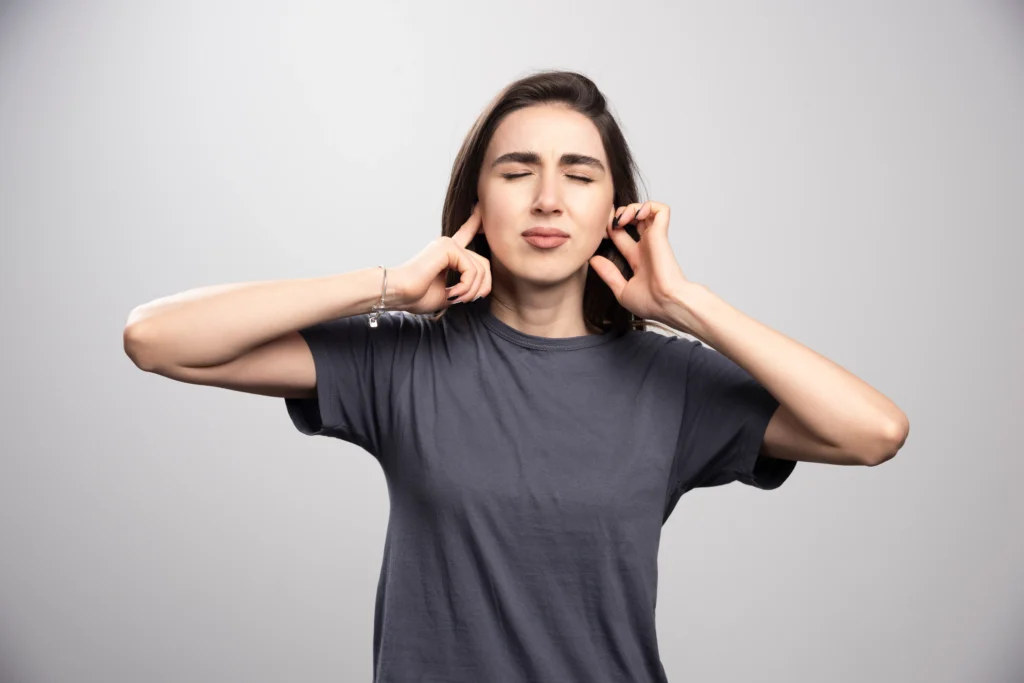Your hearing aids will require cleaning like anything else you use regularly. Quality hearing aid cleaning will provide years of reliable and better hearing.
Hearing aids are a significant investment, so it’s in your best interest to take good care of them. Learning how to clean and maintain them at home will help to ensure they last longer and continue to work well. Given the fact that they’re worn around or in your ear, they’re subject to earwax and moisture. Consistent and thorough cleaning you can do at home combined with routine maintenance provided by your audiologist will help to ensure you can hear clearly.
Care tips for your hearing aids
To clean hearing aids at home, you’re going to want to gather the right tools. A few indispensable items you’ll want to have handy are a wax pick and brush. There’s also a multi-tool you can get that contains both a brush and a wax loop for thorough cleaning. Earwax that accumulates and isn’t cleaned off can damage the receiver over time. Always wash your hands before handling or cleaning your hearing aids. Establish good habits such as putting your hearing aids in after your morning hygiene routine and putting in hair sprays or gels.
Experts recommend that you clean your hearing aids before bedtime. Cleaning them at the end of the day will give them ample time to air out before you put them in again. Chemical wipes and alcohol can damage your hearing aids. Also, take good care of them by avoiding extreme temperatures. For example, avoid having them in your pocket in the cold winter weather or setting them on a table outside in the heat.
Cleaning instructions
A hearing aid consists of several parts, which should be cleaned and maintained regularly. There are different methods or instructions for cleaning in the ear hearing aids versus behind the ear hearing aids. See below for more details.
How to clean in-the-ear (ITE) hearing aids
When cleaning an ITE model, follow these steps:
Focus your cleaning on the openings in the device including the microphone ports using a soft-bristle toothbrush or a brush provided by your audiologist to clear away built-up wax. Hold the device with the opening you are cleaning facing downward so any loose particles will fall out of the hearing aid instead of staying lodged inside.
Next, use a wax pick or hook to clear anything out of the holes that didn’t come out with the brush.
Finish by wiping the entire device with a clean, dry cloth or tissue. This will remove debris from the case of the hearing aid.
How to clean behind-the-ear (BTE) hearing aids
To clean a BTE hearing aid, follow these steps:
Examine the device for debris and remove it with a soft brush or a dry cloth.
Remove the earmold from the hook to clean it. Some earmolds, especially those made from soft materials, can become discolored and stain over time. Wiping them clean daily and soaking them in warm, soapy water once each week will help. Allow the molds to dry completely overnight before use, and do not use alcohol or other chemicals on them. Your earmolds may develop a slight odor over time, but a strong odor could indicate you have an ear infection, so consult your audiologist if you notice it.
Use a bulb blower to force water out of the tubing and then allow it to dry completely overnight.
Additional tips
Regardless of the type of hearing aid you own, remove the batteries and keep the battery compartment open to dry overnight. If they’re rechargeable batteries, then it’s a good time to dock and charge them. Also, brush the battery compartment with the cleaning brush as part of your nightly routine. If you live in a humid climate, it may be necessary to use a hearing aid dehumidifier that will draw out moisture overnight.
Consulting with a professional
It’s important to note that hearing aids should also be cleaned by a professional regularly. Speak to your audiologist about how often they recommend you have them cleaned by a professional. They have intricate tools and processes that will allow for a deep clean of all the parts.
Are you looking to consult with an audiologist regarding your hearing aids or do you need help cleaning your hearing aids? If so, then take the time to learn more about Adirondack Audiology and reach out with questions or to schedule an appointment call us today at +1 (802) 922-9545.









